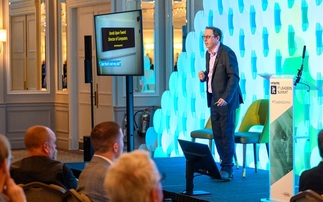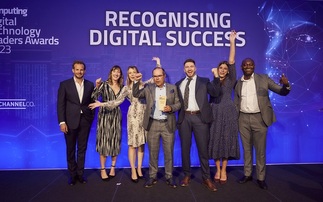Pick the best tool for the job, advises Plantronics' Judith Hogan
Even technically oriented Computing readers prefer face-to-face meetings over and above video and audio conferencing, as well as other electronic collaborative tools. That, at least, is the sugg...
To continue reading this article...
Join Computing
- Unlimited access to real-time news, analysis and opinion from the technology industry
- Receive important and breaking news in our daily newsletter
- Be the first to hear about our events and awards programmes
- Join live member only interviews with IT leaders at the ‘IT Lounge’; your chance to ask your burning tech questions and have them answered
- Access to the Computing Delta hub providing market intelligence and research
- Receive our members-only newsletter with exclusive opinion pieces from senior IT Leaders

















